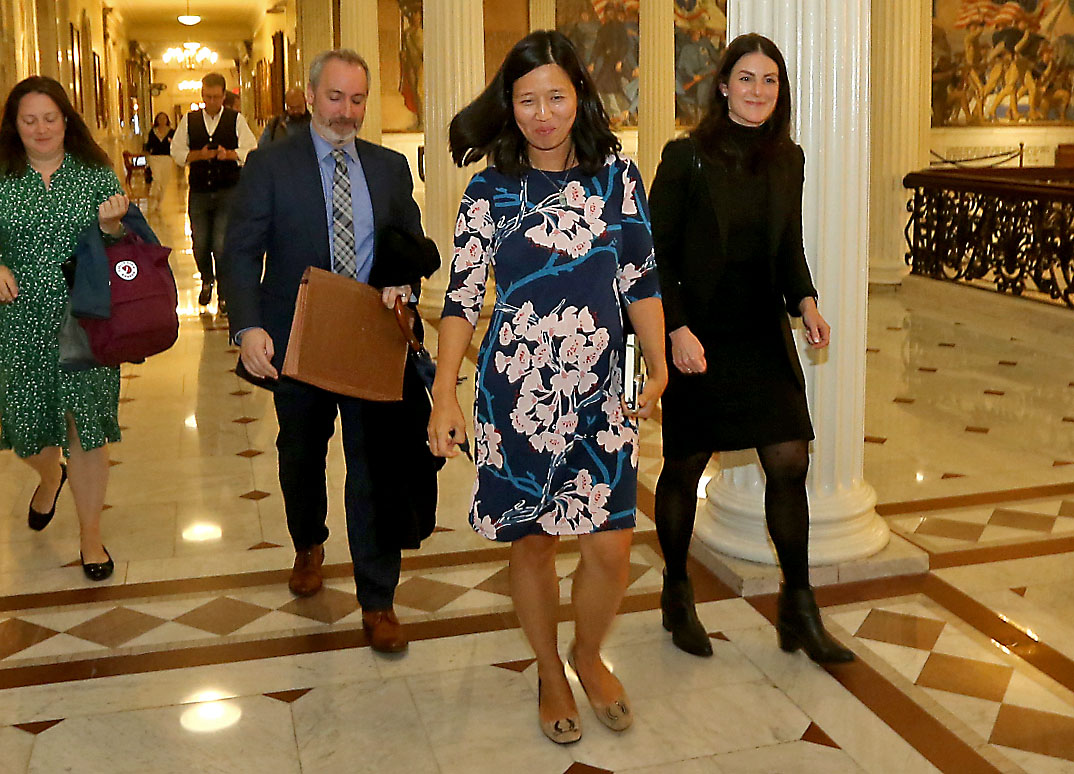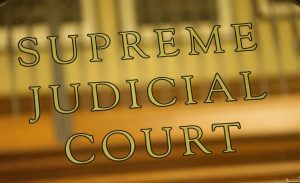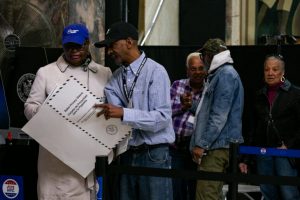
Boston’s business tax hike plan advances to State House for consideration
Boston Mayor Michelle Wu’s bid to raise commercial tax rates cleared another hurdle on Monday. The bill was filed in the House, with Wu’s late-November deadline for the state Legislature to act before city tax rates are set bearing down.
State Rep. Rob Consalvo, a Boston Democrat, filed the legislation with the provisions agreed to in the compromise the mayor struck with business leaders who opposed her initial plan, which had been codified in the home rule petition approved last week by the Boston City Council.
“Now that it has been filed, the Boston tax classification legislation will begin to move through the legislative process,” the office of House Speaker Ron Mariano said in a statement.
The legislation seeks to fend off a 28% quarterly property tax increase in January and 14% annual increase for the average single-family homeowner. The average homeowner would instead see an 18% quarterly increase and roughly 9% year-over-year hike in property taxes.
It was designed to provide relief to homeowners by giving Boston the authority to tax businesses beyond the 175% state limit for a three-year period, with a maximum shift of 181.5% in the first year, followed by a 180% and 178% shift in the remaining two years.
The tax classification shift is aimed at addressing a commercial revenue shortfall in the city’s annual budget, which is driven by changing post-pandemic work patterns that have led to falling property values and vacant office buildings.
Related Articles
Boston election officials: Last minute voting instructions for election day, improvements to vote counting
Two Boston city councilors express concerns with Council president’s ‘conduct in meetings’
MassLandlords sues Boston, says city withheld public records to protect Mayor Wu, hide unlawful rent control lobbying
Mayor Wu looks to ink long-term PILOT tax payments from ‘Big 9’ institutions first
Boston City Council approves Michelle Wu’s revised bid to hike business taxes
The Boston Policy Institute issued a watchdog report last February that projected the city’s commercial real estate woes would lead to a $1.2-$1.5-billion budget shortfall over the next five years.
The city’s $4.6 billion operating budget derives more than 70% of revenue from property taxes. The mayor says her legislation seeks to soften the rate at which declining commercial revenue is pushing more of the city’s tax burden onto the residential sector over a three-year period — rather than having homeowners experience it all at once, by way of a significant tax hike next year.
The mayor’s tax plan has been hammered by business leaders and fiscal watchdogs, four of whom were involved in drafting the compromise deal that was sent to Beacon Hill on Monday, and some city councilors, for further burdening a struggling commercial sector and Wu’s rejection of calls to cut a city budget that grew by 8% this fiscal year.
It has drawn steady advocacy, however, from seniors from the advocacy group Mass Senior Action Council, who say the tax hike they would experience without the legislation could push them out of their long-time Boston homes.
If approved by the House, the bill, which includes targeted tax relief for small businesses, would move onto the Senate, and would need the signature of Gov. Maura Healey.
Boston expects to set tax rates by late November and send bills out in January.


